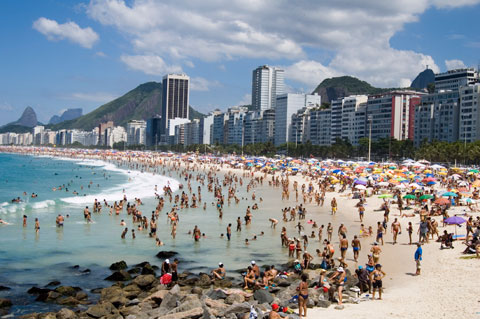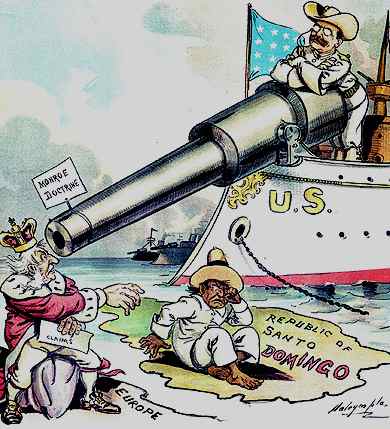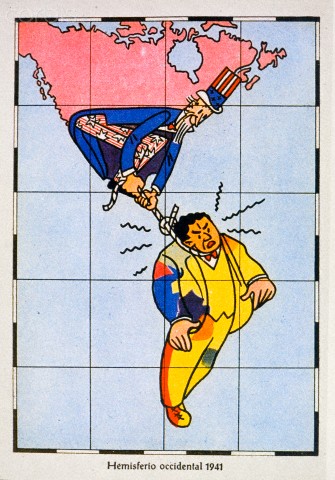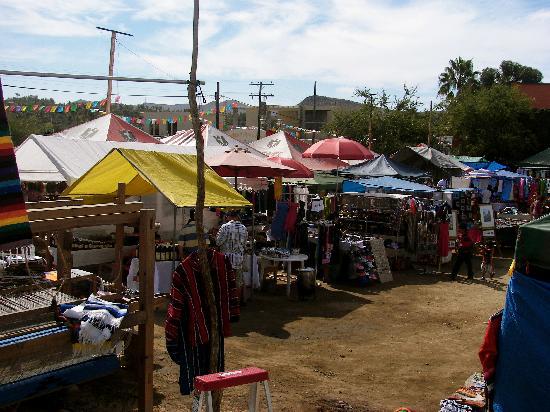The Sleeping Giant
When Forbes named Carlos Slim Helu, a Mexican businessman invested in technology, communications and retail, as one of the wealthiest people in the world, US interests in Central America perked up after more than a decade long sleep. The emerging countries had been allowed to blissfully go about their own business since 1990, when the revolutionary struggles finally came to an end. Global humanitarian efforts to remove all foreign intervention from regional conflicts sent the last of CIA contra-revolution instigators packing.
The outcome of the wars wasn’t exactly what the US was aiming at. Many of the newly liberated countries had leftist leanings, and were entirely sympathetic with Cuba. Twenty years of war, with thousands of lives lost did not change this tendency, even with the complete diligence of US mercenaries to persuade them to the higher grounds of American democracy. In the end, the number of El Salvador’s dispossessed was 90% by the year 1990 and Nicaragua was completely bankrupt. All for the sake of keeping dictators in place who were hand-shaking with US corporations; corporations that failed to retain their stranglehold on Latin American resources as the newly independent countries chose their leaders.
Economic Stimulus
During those undisturbed years, the Central American countries began exploring their new-found freedom, shaping governments that were at once democratic, with peaceful elections, and at the same time, reflecting strong Socialist views. The economic platform concentrated mainly around the ways and means of improving a uniform standard of living throughout their governing regions. Following the example of Cuba, a great deal of emphasis was placed on country-wide education and health care.
Breaking away from Cuba’s example, the Central American countries began scrutinizing tourism as one of their greatest economic assets. Tourism was certainly a practical choice. Closer to the United States than Hawaii, with the same tropical climate and far lower travel expenses, it was a pretty soft sell to budget conscious travelers.
 Tourism, however, has a trickle down effect. The primary beneficiaries are the hotels and restaurants that are able to cater to the American life style. The more traditional establishments wait for the grin-and-bear-it crowd that will suffer through cold showers turned on at intervals, and somehow manage to ignore the mustard yellow or drab green paint on the concrete walls. Anyone not involved in selling foods, toiletry items, trinkets, handcrafts or services doesn’t really see much trickle at all.
Tourism, however, has a trickle down effect. The primary beneficiaries are the hotels and restaurants that are able to cater to the American life style. The more traditional establishments wait for the grin-and-bear-it crowd that will suffer through cold showers turned on at intervals, and somehow manage to ignore the mustard yellow or drab green paint on the concrete walls. Anyone not involved in selling foods, toiletry items, trinkets, handcrafts or services doesn’t really see much trickle at all.
The recession in the Western World added a new dimension to Central American economic possibilities. The middle class, scrambling to keep their heads above water, began desperately looking around for some place to go just to remain middle class. Central America, with its all around lower cost of living, beckoned.
The New Deal Perspective
The enticement of the Central American countries certainly has a lot of appeal. The countries have become banking and Internet friendly, offer easy terms for investment and middle class prices on upper middle class styled retirement homes. For many ex-pats view Central America as a pioneering adventure.
There is a lot of pioneering involved, but with a twist. U.S. pioneering has typically resolved in US settlements committed to the social enterprise of the U.S. Government. This is largely because of the absorption of the Monroe Doctrine, either consciously or unconsciously, that assumes the special virtues of U.S. Americans and their virtues made them a superior force. It was both their duty and their kindness to instill American democracy.
The Monroe Doctrine has worked two ways: It has become the means by which successful trade has been established along US shores, uniting the American settlements into a single cause, and it has miserably failed to recognize the rights of other existing cultures.
When the Monroe Doctrine was a Tool
Before the Monroe Doctrine was introduced into US policy in 1823, there was a celebration in land-grabbing as European countries flooded in to the North American Continent to carve out their pieces of real estate. The Monroe Doctrine sought to put an end the steady migration that could ultimately result in new, rivaling countries, with a statement of its democratic resolve. It declared all future efforts by European countries to establish new colonies in the America’s would be viewed as an act of aggression. It did stipulate, however, that it would not interfere with already established colonies.
Even though the US had no navy at the time, England agreed to the terms of the Monroe Doctrine and in fact, agreed to help enforce it, lending its own navy to patrol the waters. The Doctrine’s intent served England quite well. It did not want any European competition with its own established ports, and it worried about trade with the newly independent Latin American Colonies should Spain try to regain control.
The Monroe Doctrine was used to stop Russian expansion into the west coast, and in the campaign to annex Texas. By the time James Knox Polk took the presidency during the years 1845 – 1849, the document meant to control European intervention and had taken on its own power as the Manifest Destiny of the US people.
Regional Conflicts
There are three main principles involved in Manifest Destiny. It believes in the virtues of the American people and their institutions. The mission of the believers is to spread these institutions, thereby saving the world and remaking it in the US image. This mission is the destiny of the believers who have been sent to do God’s work.
While this solidified the United States as a culture, its effect on Native American tribes was crushing. Already largely viewed as heathens, the westward traveling migration of American settlers had very little sympathy with extending the same liberties they claimed for themselves to the inhabitants of the land they were settling on. The Native American tribes were encouraged to sell or forced to give up, vast areas of land, turn to farming instead of hunting, and for society to be formed around families instead of clans. Missionaries arrived, replacing their religion with Christianity and introducing them to formal education. The message, delivered through conflict and resistance, was “be like us or you’ll not survive”.
Most people know and are uncomfortable with the history of aggression against Native American tribes. As though to wash themselves of their sins, at least sixty percent of all Americans who trace their citizenship back three or four generations, claim a Native American ancestor. It has become a point of pride instead of shame, and yet active discrimination continues against cultural Native Americans. Not even by incorporating a Native American ancestor, have the principles of Manifest Destiny changed to reflect an expanding cultural awareness.
 Effects on Latin America
Effects on Latin America
Initially, Latin America considered the stand the United States was taking against further European colonization as welcome news. Their own emancipation was on shaky ground, with anxieties that at any time Spain would try to retrieve the territories it had claimed. For them, the Monroe Doctrine came as a declaration that the Americas had become independent, with the right to develop and profit from their own resources. It was not so pleased however, when by the 1840’s the Doctrine had evolved into Manifest Destiny and was used as a banner for a war against Mexico.
For the next 150 years, the Monroe Doctrine would be used repeatedly to justify US interventions into Latin American politics. In 1904, Theodore Roosevelt added a corollary to the doctrine, stating intervention was necessary when there was evidence of “flagrant and chronic wrong-doing by a Latin American nation”.
It was invoked in 1954 against Guatemala for the spread of Soviet Communism, stating the policies were generated by a foreign entity. It was used again by John F. Kennedy in his stand against Cuba, with the same objections to foreign influence. It was used to justify spies, covert operations and mercenary soldiers throughout the 1960’s -1980’s.
A Matter of Culture
Although by 1990 human rights activists had put an end to US military intervention in Latin American affairs, there is a markedly slanted viewpoint. The countries that receive the least amount of criticism for corruption are the countries with which the US does the greatest amount of trade.
There are a number of issues involving changes in government administration, and consequent policies and contracts. These can alter with each new president. The Latin American countries are rising up out of smoke and ruin, political upheaval and changing fortunes. Many of the countries had been ruled by dictators, creating an economic disparity that left thousands below poverty level in any given region. Some continue to rumble with unrest as they seek a balance in their economic resources. Changes have and will take place, Their direction will be largely dependent on the popularity of the programs that were introduced.
What the statistics fail to provide is the social treatment of its people. The US statistics are very happy to tell us that Guatemala is among our largest trade partners; ranking 47th as the largest supplier of imported goods and receiving a whopping 37% of US exports. What it doesn’t tell us is that Guatemala has one of the highest disparities between the wealthy and the poor of all countries, with over twenty percent of the people living in extreme poverty, and another thirty percent living at global poverty levels.
According to the US Department of State, Ecuador is a very corrupt place, stating “government officials and Ecuadorian businessmen have used regulatory schemes and questionable legal maneuvers to affect foreign company operations within the country.” Of course, this might have to do with Ecuador’s pre-emptive strike; throwing American oil companies out on the ears; but to bring this up could be distasteful to the purists of American democracy. Ecuador is currently suing Chevron for treating its rainforest like a dump, leaving behind 16 billion gallons of untreated toxic production water that was admittedly dumped into the streams.
The View from Latin America
When seen from the perspective of social programs, one has to wonder about the true definition of corruption. Even within Nicaragua, the poorest of the Central American countries, there is a health care program to meet the needs of all its people. It has also sunk in a great deal of its limited funds for improving educational standards, state-of-the-arts communications, and upgrading its road system.
Latin American politics are merging in a way that is both healthy and progressive. They have taken a renewed interest in their environment, realizing that their rainforests and eco-systems play a vital function in global environmental health. They support eco-friendly landscaping, renewable energy and forest replanting.
Most of the countries hold democratic elections. The popular choice of governance, however, nearly always swings toward socialized viewpoints. Anyone who has spent much time in a Latin American country knows the decidedly social aspects of the people. They are openly friendly and affectionate toward each other. They are tolerant of groups; even noisy ones; and rarely complain of loitering, beggars or traffic violations; if violations are discernable at all. More disputes are resolved through neighborly discussions than by legal interventions; even petty crime such as theft or swindling.
The United States has a highly structured system of law. This law making body removes the responsibility of decision making from the citizen, giving a guideline of exacting responses to make in order to remain within the letter of the law. Latin American social life truly reflects a law of the people.
Breaking Free
Let the past rest. The Monroe Doctrine deprived us of the excitement of developing into a nation of merging cultures, each one with special gifts that help us become aware of ourselves as individuals with choices and personal direction. It deprived us of building good relationships with Latin America for over a hundred years.
We need to get over it. We do not have a special destiny to give the world, although the world has been moving steadily forward while we were enthralled with our own antiquated enlightenment. It’s not surprising so many of the Latin American countries have told the US Government to butt out of their affairs when government intervention into our affairs are exactly what we all complain about.
Central America has opened the doors to ex-pats and ex-pat businesses. What it has not opened its doors to though, is doing things the U.S. American way. Those who thrive best in the Latin American countries are those who have not only accepted; but absorbed the culture. The ex-pat communities of retirees will eventually stagnate; even die out; as retirement communities have a habit of doing. Businesses centered mainly around ex-pats and tourism will remain just that, little islands of English speaking colonies that have never tasted the full flavor of Latin America. They may or may not be affected by changes in government and policy. Those, however, who have chunked the Monroe Doctrine out the door and embraced Central America as their home land have a wonderful, exciting future as a citizen of an emerging country.



Some of what you wrote wasn’t my experience when living in El Salvador. For one thing, the people are hardly open and friendly towards one another. There is a high level of distrust since the civil wars..And that has to do with a amount of collaborators, even in democratic socialist regimes. Also, the wealthy don’t prosper so much from tourism any longer as much as profiting off of socialist medic
One by selling pharmaceuticals to clinics and hospitals. respiratory illnesses are BIG business in a land where pollutants are abundant. The other vehicle for profit is gun sales. Another form of profit for the wealthy other is real estate. Looralthy in El Salvador was k at families like members of the ARENA party and you will notice many of its wealthiest citizens still have staunch conservative (and corrupt) ties. Another huge profit maker for the was the change from the Cologne to the dollar. Nicaragua is a victim of its own Ortega and the corruption he had brought to what could be a progressive form of socialism…but what do you expect from a country where every block has a government collaborator working with the Nicaraguan cadre? What Americans rarely get is the truth about the govts. of Central America.
Forgive my typing on this tablet. Colone not cologne…used to be El Salvador’s monetary system…it is now the dollar, changed to help trade. the effect was that “LA canasta” or the basket of foods like beans and rice, went up in cost for Salvadiorans, the we times t he previous cost. another monetary consideration there is called “remesas”,meaning remittance of money pouring into the country from Salvadorans living outside of the country…so much so, that the news even tracks the amounts per month or quarter
Jennifer, my contention is that US intervention into politics; largely based on the precepts of the Monroe Doctrine; has done more harm than good in the Latin American countries. The economic base for both El Salvador and Nicaragua were completely wiped out in the attempt to make the people choose US favorable policies. We don’t have to agree with their choices, but we do have to respect their independence. US citizens who seek to relocate in a Central American country would be better off leaving behind them American Colonial attitudes.
I find it unfortunate that your experiences in Central America were such negative ones. Truthfully, in ten years of living in the Central American region, my own were of an astonishing, thrifty people who used every available item with ingenuity, turning other people’s cast-off’s into tools, furniture and shelter. They were very friendly, very kind. I received the privilege of being a guest and even a tenant into a great many homes, invited to family celebrations and accepted into social circles.
Relations between the Central American countries and the United States will remain at an impasse until the US accepts that these countries are going to find their own. Sure, they’ll make mistakes. In two hundred years of stable government, the Us still makes mistakes and is currently a floundering economy with no real solutions in sight.
What makes US citizens uncomfortable is that Central American governments are in a constant state of change. Many of these governments are young, having gone through a revolutionary process in very recent years. They will discover their own truths. It’s called self-determination and is the only real way to grow and develop a governing body the citizens will find agreeable.
People from third world countries are brainwashed to think their countries are bad in every sense of the word, whereas the western first world is the definition of good. That’s why they leave their home countries and settle in the US. The first world needs cheap peon laborers.
Hi Karlsie, I enjoyed your article; your point was well argued and I am pleased to see it has generated interesting comments. I am not that political, but it does seem that things are not all that they could be in Central America – very sad – and does show a side of the ‘ugly American’, that I am not that pleased with. Keep writing!
Peter, I don’t think it’s just people in foreign countries who are brainwashed into thinking their countries are “bad”. I think most Americans are raised with the concept that there is only one right way to do things; by the precepts of white American colonialism. They don’t perceive this, yet they accept colonial authority opinions without examining the authority of other cultures. Most third world countries see the success of American materialism and believe they have somehow failed because they have not been so successful.
I find Latin American countries extremely interesting because in terms of natural resources, they are among the wealthiest. However, their history has always been one of economic disparity. Their experimental governments are attempts to rectify the problem, but US government support is generally toward the countries that create the most favorable trade policies for US corporations, not for the ones who are conscientiously striving to improve the standard of living for all their people.
What I find most interesting is that while the US became a selective culture, recognizing only its interpretation of democracy, erasing any other cultural influence other than white colonialist society. On the other hand, Latin American became a distinct blend of Spanish, African and indigenous influences, creating a unique society and culture. The US has become an old man, set in his ways, while Latin America is a vibrant youth.
Thank you, Kenn, for your kind comment. My politics are not really based on any particular preferences, only on the firm belief in natural liberties. The liberties of one should be the liberties of all, and to remove the liberties from any one person or nation is to put your own in jeopardy.
American democracy means Obama (purportedly) makes the decision to attack Syria, then he has to convince Congress, which in turn must convince the people. The true concept of democracy is the exact opposite of this I believe.
Meanwhile, the American voters just aren’t educated enough to know the difference. The educated people in America on the other hand are all immigrants and would not want to jeopardize their chances of achieving the American Dream.
The greatest democracy on earth.
Peter, of course the persuasive process has begun by presenting the prosecution’s side; that is to say, a display of dead bodies with an explanation as to why the use of chemical weapons is a violation of International law and that Assad should be punished. Russia takes part for the defense, asking “where’s the proof?” The prosecution replies, “Russia has special interests in Syria”.
Propaganda is a highly persuasive tool. It flatters the educated mind, leaving it to believe the cleverly crafted words are signs of intelligence, It uses already established biases to further its goal. I do not see this technique as the exclusive domain of US politics as all countries practice propaganda to varying degrees. The propaganda machine however, has until now, been highly beneficial for the colonialist mind set. It has worked at seizing lands that did not belong to them and promoting the affluent livelihood of those that comply with the “educational” system of white colonialist advancement.
There is no perceived benefit in punishing Assad, so the machine must build a platform concerning the nobility of a cause. Since Obama has decided there doesn’t need to be an immediate date for carrying out his judge/jury/executioner sentence, most likely a great deal of effort will go into building the prosecution’s case. It’s not that Americans are uneducated. The vast majority are over educated in specific areas, without a broad based background.
Indoctrination is not really education. An educated man would know that the Syrian government has got numerous political think-tanks working for them, in addition to the army of Iranian thinkers and political strategists who aid them. So, the Syrian government must know that using chemical weapons against innocent people would force the US to intervene. Or rather, it would give the US a reason to step in: protecting the poor Syrian people from the evil Syrian people who are governing them.
An educated person would know that for the Syrian government to use chemical weapons would be suicide. But, for example, when Saddam Hussein used chems against Iranian civilians, it was certainly not a suicidal move because the west was supplying him with the weapons. The west has been known to supply chemical weapons to its allies, so there is precedent here.
Israel is the largest supplier of “dirty” weapons in the middle east. Israel receives cash aid from the US every year, which they use to buy arms from the US, which they modify and sell on the black market for a big profit. If I had to bet where the chemical weapons in Syria came from, my money would be on Israel. Apparently, the Israelis were giving away gas-masks to their people before reports of chemical warfare in Syria had even surfaced.
The media showed scared Israeli non-combatants in line to receive gas-masks because they feared the evil Syrian monarch, the corrupt Bashar Assad. The truth is that all of Israel’s Jewish population are combat trained. The Zionist media accused Bashar Assad of using chemical weapons against innocent people before any evidence had surfaced suggesting either way.
Thus, an educated person would guess that the Zionists and the US are behind this whole scheme as an excuse for bombing (not invading) Syria. Once Syria has been destroyed, the Zionist world bank will swoop in and give them loans to rebuild, like Iraq. And while the middle east is in chaos, and people are busy trying to pick up the pieces of their lives, the US and the Zionists will take over their governments, like Afghanistan.
An indoctrinated person, no matter how high his/her education is, will hate the monster Assad for his crimes against the poor Syrian people, and give his full approval to bomb those very same Syrians.
Just my two cents. And sorry for dragging your thread off-topic.
No problem with the distraction, Peter. It’s not really off-topic. I concentrated on Central America as it’s a region I understand well, but wherever the US Government meddles into the affairs of other countries, you can bet the indoctrination of American democracy superiority is behind it. I can’t even count the number of times that I have illustrated where a governing body has handled social problems better, enacting humane, sensible laws, and the response was, “no matter what our faults, we are still the best country in the world”. National pride is good. Clinging to illusions that there is no better way of doing things than what your nation is doing is a failure to progress and assume a true leadership role.
I don’t believe in “best countries in the world”. They all have their faults. They all have their short-comings. The better countries are the ones that learn from each other and embrace policies that create healthy, thriving societies. Forcible rule is not healthy. Countries that are constantly at war are not thriving. They are only stealing resources to support their appetites. Obama is currently trying to gain International support for his invasion while even the citizens of the US are saying they do not wish to wade into another war. I think just about everybody is fed up with this “moral high ground” that simply doesn’t exist. There is nothing moral about our fascination for blowing up countries in the mid-east. We need to pull out. We need to let Israel take care of its own problems, which it created all by itself by being a very hostile neighbor.